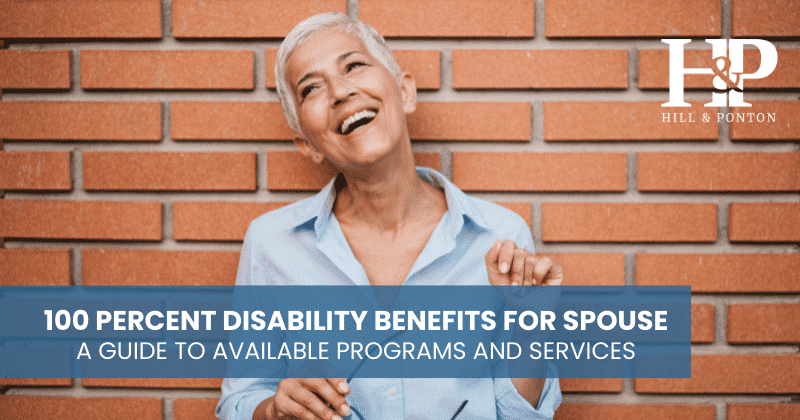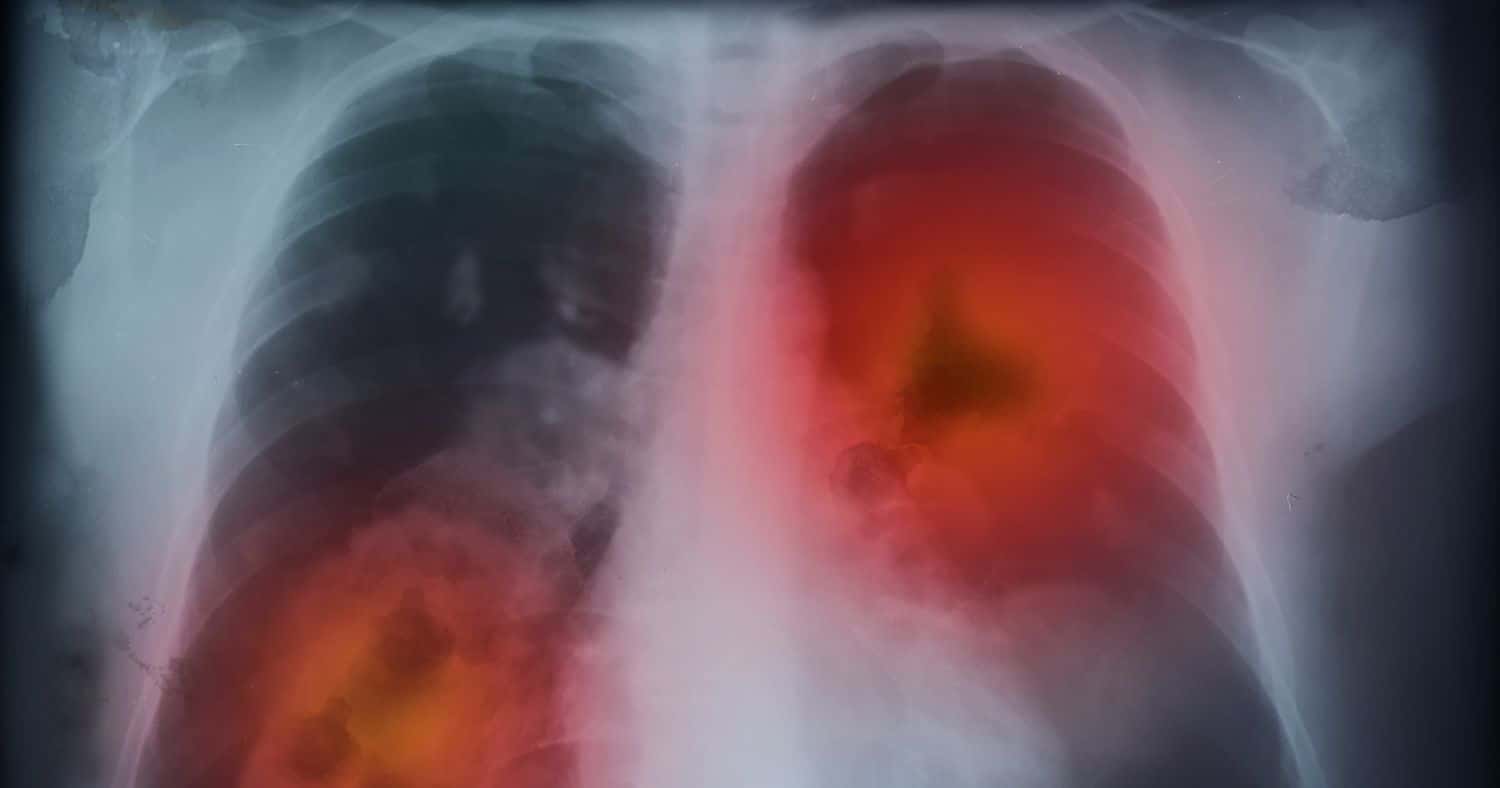What is the difference between VA Disability Compensation and Disabled Veteran Benefits for Spouses?
If a Veteran becomes wounded or injured or becomes sick as a result of their military service, they may be entitled to VA disability compensation. This is a tax-free monthly payment from the Department of Veterans Affairs related to service connected disabilities. If it is determined that the Veteran has a compensable service connected condition, or multiple conditions, they will assign a disability rating between 0% and 100%.
Additionally, a 100 percent service-connected disabled Veteran may be eligible for several benefits for spouses through the Department of Veterans Affairs (VA). These programs help ease some of the burdens placed on Veteran families.
What does this mean? If you are a spouse, you need to know what VA benefits you qualify for and how to apply for them.
What Types of Benefits am I Eligible For as a Spouse?
You qualify for health, educational, job-related, and state benefits.
Financial Benefits
Based on the 2022 Veterans Disability Compensation Rates, your spouse’s monthly payment amount depends on their disability and details about their family and dependents. The following basic monthly benefit assumes a 100 percent disability rating:
- A Veteran alone would receive $3,456.30.
- A Veteran who is married $3653.89.
- A Veteran with a spouse and a child would receive $3802.99.
Health Care Benefits
In addition to financial aid, you may be eligible for health care coverage from various VA programs. These programs may reimburse inpatient and outpatient services, prescription medications, medical equipment, nursing care, and mental health care. Some of the programs available that pertain to Veteran spouses and dependent children include:
TRICARE
This program provides comprehensive health care coverage, including healthcare plans, prescription medications, dental plans, and programs for people with special needs.
Civilian Health and Medical Program of the Department of Veterans Affairs (CHAMPVA)
If you are
- spouses of a disabled Veterans or
- spouses a service member who died in the line of duty, and
- you do not qualify for TRICARE,
You may be eligible for CHAMPVA. This program would cover some health care services and supplies.
The Program of Comprehensive Assistance for Family Caregivers (PCAFC)
Caregivers of eligible disabled Veterans, and who meet eligibility requirements may be able to receive financial stipends, health insurance, mental health services, training and respite care.
The Camp Lejeune Family Member Program
Those who lived at U.S. Marine Corps Base Camp Lejeune or Marine Corps Air Station (MCAS) in North Carolina, for at least thirty (30) cumulative days, between August 1953 – December 1987 may be eligible for health care benefits due to possible exposure to contaminated drinking water.
Pharmacy Benefits
If you qualify for CHAMPVA, you can get prescription benefits through your pharmacy.
Education Benefits (Chapter 35)
Two main GI Bill programs offer VA education benefits and assistance to Veterans’ spouses. You can apply to both programs but are only able to utilize one of them:
- The Marine Gunnery Sergeant John David Fry Scholarship (Fry Scholarship): is for spouses of:
- Active-duty service members who died during military service on or after September 11, 2001
- Members of the Selected Reserve who died from a service-connected disability on or after September 11, 2001
- The Survivors’ and Dependents’ Educational Assistance (DEA) Program: is for spouses of Veterans who:
- Are permanently and totally disabled because of a service-related condition
- Died while on active duty or as a result of a service-related condition
The benefits provided by these GI Bill programs include education benefits and training, money for tuition, money for housing, and money for books and supplies.
In the next section, additional GI Bills also apply to educational benefits.
Job-Related Benefits
Suppose you are the spouse of disabled Veterans and are eligible for certain VA educational benefits. In that case, you may also be eligible for VA educational and career counseling services, which include:
- The Post-9/11 GI Bill (Chapter 33): helps pay for school or job training. If a Veteran served on active duty after September 10, 2001, you might be eligible.
- The Montgomery GI Bill Active Duty (MGIB-AD, Chapter 30): can help pay for education and training programs. You could qualify if a Veteran spouse served at least two years on active duty.
- The Montgomery GI Bill Selected Reserve (MGIB-SR, Chapter 1606): offers up to 36 months of education and training. If your Veteran spouse was a member of the Army, Air Force, Navy, Coast Guard Reserve or Marine Corps, Army National Guard or Air National Guard, you may be eligible.
These benefits include educational and career counseling and guidance with an application, exploring interests and examining your abilities, employment planning, and assistance with understanding your VA benefits.
State Benefits
The state where you reside may also offer benefits, including employment assistance, property tax exemptions, and educational counseling services. These benefits vary from state to state, but you can check with your local VA Office for more information.
VA Centers and Benefits State-By-State Guide
Does it Matter if My Spouses Disabilities are Temporary or Permanent?
No, it does not. VA Permanent and Total Ratings have different meanings. Just because a Veteran receives a disability rating of 100 percent, it may not indicate that the condition will be permanent.
Permanent Disability
Permanent means that the VA considers a disability to be permanent when the medical evidence shows the severity of the Veteran’s condition will continue for the rest of the Veteran’s life. If a disability is not considered permanent, it is called a temporary disability.
Total Disability
A 100% rated disability means that it is a total disability. Ratings are assigned to disabilities based on the VA’s rating schedule.
What about Dependency and Indemnity Compensation (DIC) and Survivor Benefits?
If you are the surviving spouse or dependent of a disabled veteran or service member, you would qualify for dependency and indemnity compensation (DIC). These are tax-free disability benefits for spouses and dependents. The rates are set on an annual basis.
If you are a surviving spouse of a disabled veteran, you will have several options that entitle you to disability compensation:
- Married prior to January 1, 1957.
- Married within 15 years of discharge.
- Married at least 1 year.
- Had a child with a military member and not currently remarried.
DIC is considered permanent for a surviving spouse. However, if you have a dependent child receiving benefits, it would only last until 18 years of age (or 23 if they are enrolled in a university and pursuing higher education).
Obtaining 100 Percent Benefits As a Spouse
Some benefits will automatically be rewarded once your spouse’s service-connected disability is rated 100 percent. Other benefits will only be awarded after applications have been approved and eligibility requirements have been met.
The application process can be complicated at times, and the Department of Veterans Affairs (VA) can be unclear about the requirements necessary or important due dates to consider.
If you feel your Veteran is not receiving the benefits they deserve due to a service-connected injury, you can:
- Contact the VA for assistance, or
- Reach out to a professional who can help.
If necessary, you can always appeal a decision, and Hill and Ponton, PA, and their legal professionals would be happy to assist you.




